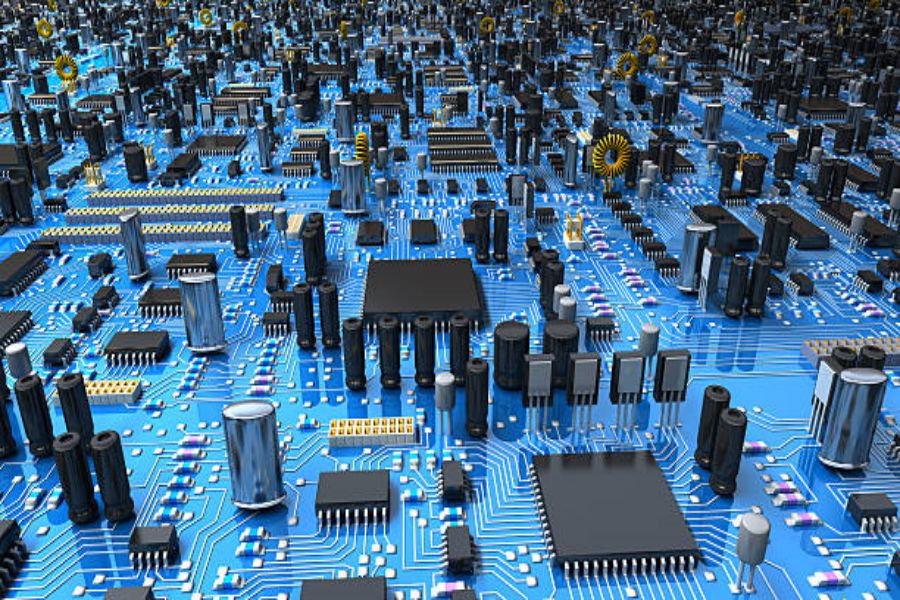Table of Contents

The Basics of an Inductor on a DC Supply
An inductor is a passive electronic component that stores energy in the form of a magnetic field. When connected to a direct current (DC) supply, an inductor resists changes in current flow, allowing for a smooth and steady flow of electricity. In this article, we will explore the various aspects and benefits of using an inductor on a DC supply.
1. Understanding Inductance
Inductance is a fundamental property of an inductor, measured in Henrys (H). It determines how an inductor reacts to changes in current. When a DC supply is connected to an inductor, it resists sudden changes in current, preventing any sudden spikes or drops. This property is crucial in many electronic circuits, where a steady and controlled current flow is required.
2. Filtering and Noise Reduction
One of the primary uses of an inductor on a DC supply is in filtering and noise reduction. Inductors can be used in conjunction with capacitors to create low-pass filters, which allow only low-frequency signals to pass through while attenuating higher-frequency noise. This is particularly useful in applications such as power supplies, where filtering out unwanted noise is essential for proper operation.
3. Energy Storage and Release
Inductors have the ability to store energy in their magnetic fields and release it back into the circuit when the current changes. This property makes inductors vital in various electronic devices, such as transformers and motors. By utilizing inductors, energy can be efficiently stored and transferred, resulting in improved overall system performance.
4. Boosting Efficiency
When an inductor is used in a DC supply circuit, it can significantly improve the overall efficiency of the system. By smoothing out the current flow and reducing noise interference, the inductor helps to minimize power losses and wasted energy. This can lead to cost savings and increased longevity of electronic devices.
5. Inductor Types and Selection
There are various types of inductors available, including air core, iron core, and toroidal inductors. The choice of inductor depends on the specific requirements of the circuit. Factors such as inductance value, current rating, and physical size need to be considered when selecting an inductor for a DC supply. Consulting the manufacturer's datasheet and seeking expert advice can help in making the right choice.
6. Inductor Saturation
Inductors have a limit to the amount of current they can handle before entering a state called saturation. Saturation occurs when the inductor's magnetic field can no longer increase, leading to a significant decrease in inductance. It is crucial to ensure that the DC supply circuit does not exceed the inductor's saturation current to avoid performance degradation and potential damage to the component.
7. Inductor Ripple Current
In DC-DC converter circuits, inductors play a crucial role in regulating the output voltage. The ripple current, which is the small fluctuation in current, can be controlled by selecting the appropriate inductor. By carefully calculating the required inductance value and considering the maximum allowable ripple current, the DC supply can maintain a stable output voltage.
8. Inductor Efficiency and Losses
While inductors are highly efficient components, they still experience some losses. These losses can occur due to factors such as resistance in the wire windings and core material losses. Understanding these losses and selecting high-quality inductors can help minimize energy wastage and improve overall system efficiency.
9. Inductor Sizing and Heat Dissipation
Proper sizing of an inductor is crucial in ensuring its reliable operation. Choosing an inductor with the appropriate current rating and considering heat dissipation capabilities are essential to avoid excessive heating. Overheating can lead to performance degradation and potential component failure.
10. Inductor Applications in Power Electronics
Inductors find extensive applications in power electronics, including DC-DC converters, voltage regulators, and motor control circuits. Their ability to store and release energy, along with their filtering properties, make them an invaluable component in these systems. Understanding the specific requirements of each application and selecting the right inductor can greatly enhance the performance and reliability of power electronic devices.
